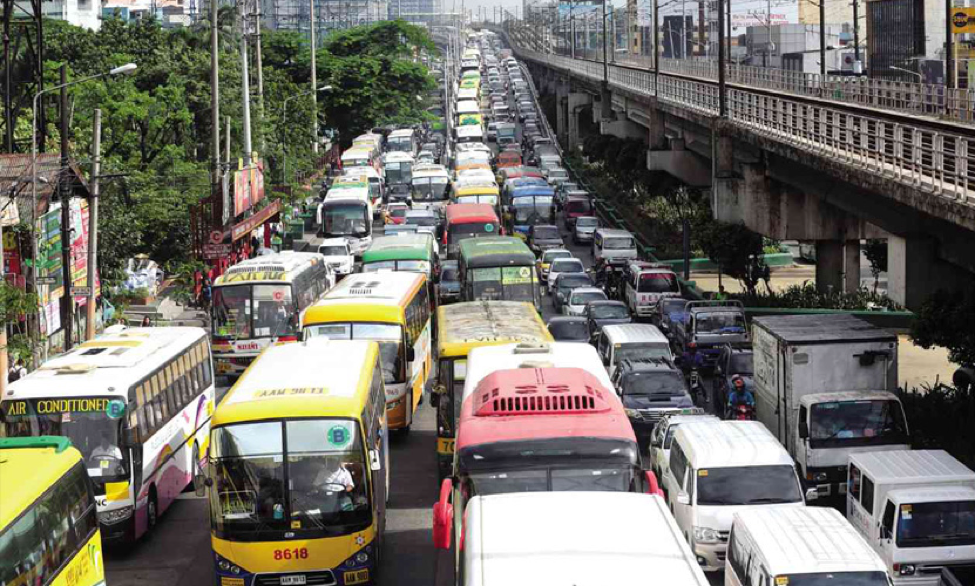
Nationalist People’s Coalition (NPC) Congressman Win Gatchalian asked the Department of Transportation and Communications (DOTC) as well as the Metro Manila Development Authority (MMDA) the reason for the delay in the implementation of the Bus Rapid Transit (BRT) system that should help ease worsening traffic congestion in the National Capital Region.
Gatchalian raised this question as he disagreed with the recommendation made by Chairman Winston Ginez of the Land Transportation Franchising and Regulatory Board (LTFRB) in Congress Monday that his agency wants an additional 100 passenger buses plying the EDSA route.
“We do not need additional passenger buses in an already congested EDSA. What we need is the BRT system that has been long overdue because of the slow decision-making process in the DOTC and the MMDA,” explained Gatchalian.
Related News: Malacanang urged to create ‘super body’ to form unified traffic scheme
Gatchalian said it was during the time of MMDA Chairman Bayani Fernando that the operationalization of the BRT system in Metro Manila was first planned in anticipation of the possible traffic congestion in EDSA as early as 2004.
In 2003, Chairman Fernando and Gatchalian, in his capacity as then Valenzuela City mayor, personally observed the Transmilenio BRT system in Bogota, Colombia, whose success inspired many cities to build their own BRTs.
The solon pointed out that having such an alternative system is crucial as road congestion already costs Asian economies around two to five percent of their GDP yearly because of lost time and higher transport costs, according to the Asian Development Bank (ADB).
Gatchalian, a senior vice chair of the House Committee on Metro Manila Development, said the Manila BRT System will not only help decongest the National Capital Region but it will also bring economic gains since “BRT is faster to implement, cheaper than medium rail systems and more efficient than the conventional buses.”
“For one, building the BRT will provide an alternative to the LRT and MRT systems, and thus help members of the labor force increase their mobility and productivity. It will be a win-win situation for both workers, employers, and the economy as a whole,” said the Valenzuela City lawmaker.
Related News: High-capacity modes of transpo can solve traffic problems in Manila
Gatchalian added: “Fares are likely to be competitive, considering that commuters now have other options to be able to go to their respective workplaces. This will be a huge economic relief especially to students and their parents.”
In terms of expenses, the BRT is cost-effective while being able to deliver fast and high quality transport services compared to a light rail transit system because local labor and materials will be used for the project.
The Metro Manila BRT System is also affordable in terms of initial capital, operations, and maintenance, so government funds can be used in other critical social and infrastructure projects.
Gatchalian said that even China, one of Asia’s economic giants, recognized the significance of investing in such a transport system to the country and the economy. Through ADB’s assistance, an urban transport system in Lanzhou – the capital of Gansu province in China and one of the major points in the ancient Silk Road – was built, with a BRT as its centerpiece.
Lanzhou’s BRT, said the Bank, “costs 10 times less and is quicker to construct.” Commuters pay the fare ahead of time at the BRT station before boarding the bus.
“There is no doubt that once the out local BRTs became operational, this will boost the mobility and productivity of the workforce,” Gatchalian said as he asked the DOTC to give highest priority to the BRT system project.
No less than DOTC Secretary Joseph Emilio Abaya has been quoted as saying that BRTs are “game changers”, and since “they will be granted as concessions, their riders will not be at the mercy of ‘colorum’ vehicles or transport strikes.
They will be spared from unnecessary disruptions and unsafe traveling conditions.”
“My question to Secretary Abaya is: What is the reason behind the delay in the implementation of the BRT system which should have been prioritized and expedited by the DOTC and the MMDA?,” Gatchalian concluded. (R. Burgos)


